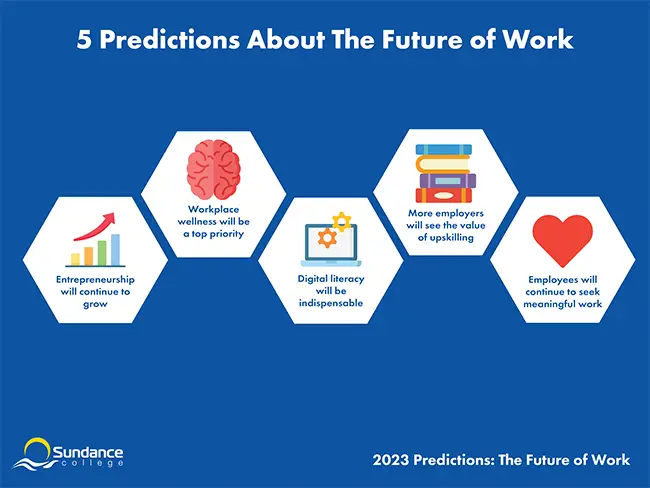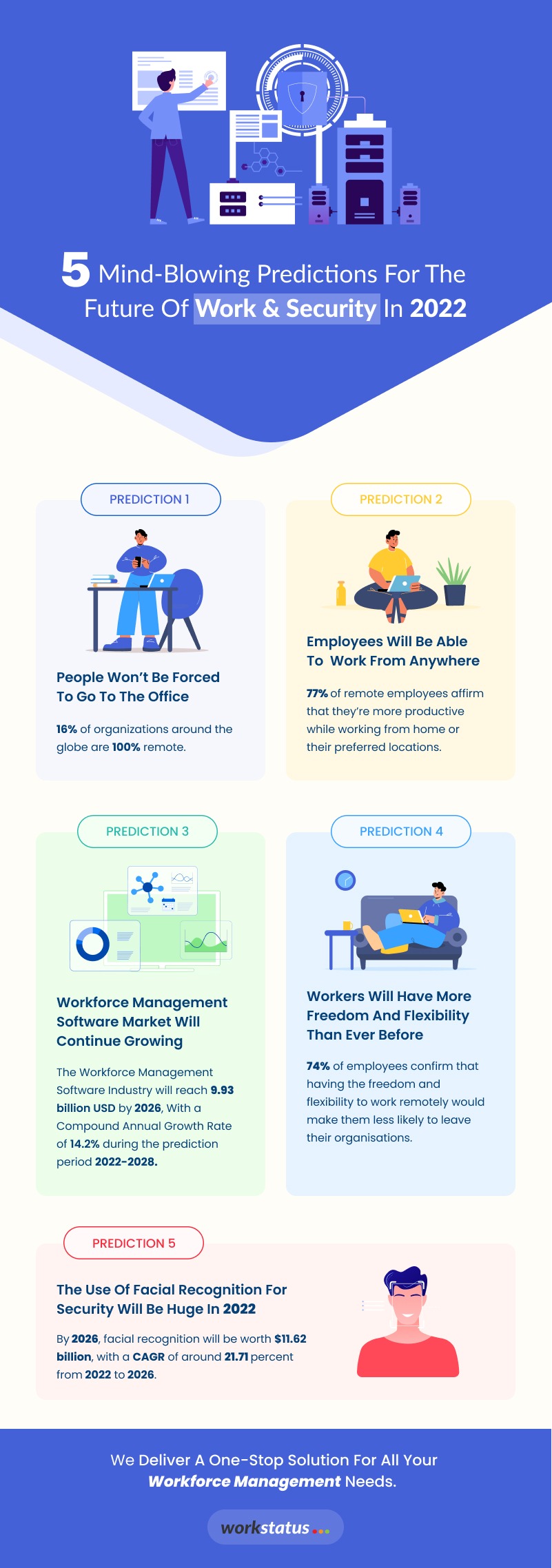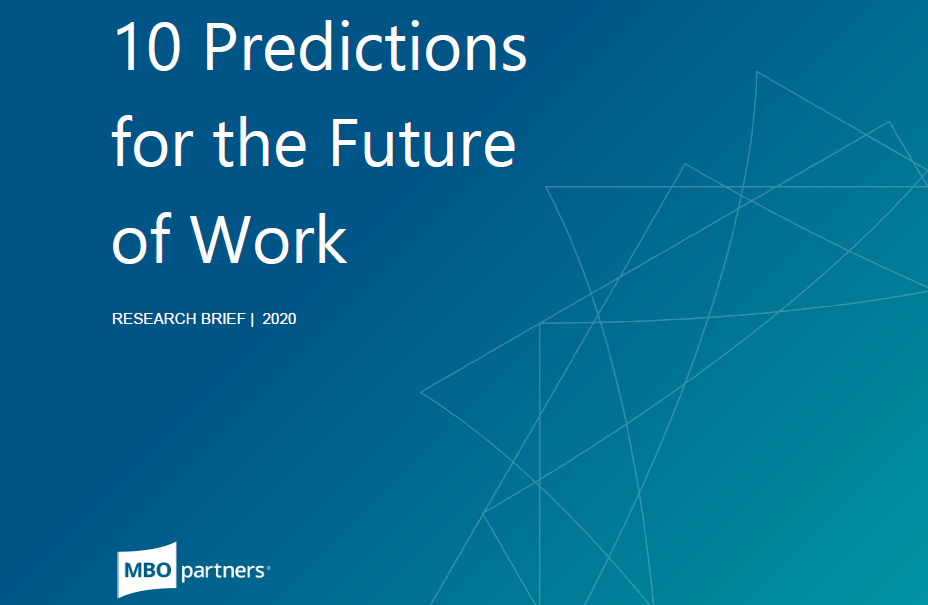Predictions for the Future Workforce: Navigating the Evolving Landscape
The future of work is rapidly transforming as new technologies, social dynamics, and economic factors reshape the workforce. The workplace is no longer confined to traditional offices, and the demands for flexibility, digital skills, and well-being are rising. With these changes, companies and employees must adapt to remain competitive and effective. In this article, we’ll explore the key predictions for the workforce of the future, the impact of emerging trends, and how organizations can prepare for the upcoming challenges and opportunities.
The Future of Work: Key Predictions
1. Remote Work Will Become the Norm
One of the most significant shifts in the workforce has been the rise of remote work, a trend that accelerated during the COVID-19 pandemic. According to a McKinsey report, more than 30% of the workforce could work remotely three or more days a week by 2025.
While some industries will always require in-person work, remote-first policies are expected to persist across many sectors. The future workforce will see a greater reliance on digital tools and collaboration software, enabling seamless communication and productivity no matter where employees are located.
2. Hybrid Work Models Will Continue to Evolve
While fully remote work is rising, the hybrid work model—where employees split their time between working from home and the office—is expected to become a long-term solution. A survey by Gallup found that 54% of employees prefer a hybrid model, indicating that flexibility is a key factor in employee satisfaction and productivity.
This trend will likely lead to a redefined office space, with organizations shifting from traditional layouts to collaborative spaces that foster creativity and team-building when in the office. The hybrid model may also require significant investments in technology and infrastructure to support seamless communication and collaboration across various locations.
3. The Rise of AI and Automation
Artificial intelligence (AI) and automation technologies are poised to revolutionize industries across the board. The World Economic Forum predicts that AI will displace 85 million jobs globally by 2025, but it will also create 97 million new roles that focus on human-AI collaboration, data analysis, and complex problem-solving.
In the future, employees will need to be comfortable with AI integration into their roles. Routine tasks such as data entry, scheduling, and basic customer service are already being automated, which allows workers to focus on more strategic and creative tasks. Companies will need to invest in reskilling their workforce to keep up with this technological revolution.
4. Workplace Well-Being Will Be a Top Priority
The importance of employee well-being has grown substantially in recent years, and this trend will continue as mental health and work-life balance become key priorities. Burnout is a major concern for organizations, with studies showing that a significant portion of employees feels overwhelmed by their workload.
Companies are increasingly offering mental health benefits, flexible work hours, wellness programs, and access to counseling services to support their employees’ health. Well-being initiatives are not only a way to retain talent but also to improve overall productivity and reduce absenteeism.

5. The Demand for Digital and Soft Skills Will Surge
As technology continues to transform industries, digital skills are becoming essential for most jobs. However, soft skills such as adaptability, critical thinking, emotional intelligence, and creativity will also be in high demand. A study from LinkedIn found that 92% of talent professionals prioritize soft skills, as they are seen as critical to innovation and leadership.
Organizations will need to focus on upskilling their employees to thrive in a tech-driven world. Online learning platforms, mentorship programs, and hands-on training will play an important role in preparing the workforce for future demands.
6. Diversity, Equity, and Inclusion Will Be Central to Company Culture
Diversity, equity, and inclusion (DEI) are becoming crucial elements of company culture, and the future workforce will continue to demand organizations that prioritize these values. According to McKinsey, companies with higher diversity are 35% more likely to outperform their less diverse counterparts in profitability.
In the future, businesses will be expected to not only diversify their talent pool but also create inclusive environments where employees feel valued, respected, and empowered to contribute their best work. DEI efforts will play a central role in driving innovation and enhancing employee satisfaction.
How Companies Can Prepare for the Future Workforce
1. Adopt Flexible Work Policies
To stay competitive and attract top talent, businesses must offer flexibility in where, when, and how employees work. Implementing flexible policies that accommodate remote and hybrid work models, along with flexible hours, can help employees maintain a better work-life balance while increasing retention and job satisfaction.
2. Invest in Technology and Automation
As AI and automation reshape the future of work, companies should invest in the latest technologies to streamline operations and improve efficiency. Employees should be trained to use these tools to complement their roles, allowing them to focus on higher-level tasks that require human creativity and problem-solving.
3. Create a Strong Learning Culture
With the increasing demand for digital and soft skills, fostering a culture of continuous learning is essential. Businesses should offer training programs, certifications, and online courses that help employees stay ahead of the curve and evolve with the changing landscape of work. Encourage cross-departmental collaboration to help employees broaden their skill sets and stay adaptable.
4. Prioritize Employee Well-Being
Companies that prioritize the well-being of their employees will have a competitive advantage in the future. Implementing programs focused on mental health, stress management, and work-life balance can help create a healthy work environment that leads to higher productivity and employee satisfaction.
5. Foster a Diverse and Inclusive Environment
To thrive in the future, companies must prioritize diversity, equity, and inclusion in all aspects of their operations, from hiring practices to leadership development. Cultivating a diverse workforce not only enhances innovation but also creates a more dynamic and supportive workplace.

FAQs: Predictions for the Future Workforce
1. Will remote work remain permanent in the future?
Yes, remote work is expected to remain a significant part of the future workforce, though hybrid models where employees split their time between home and the office are likely to become more common. Flexibility will be key in attracting and retaining top talent.
2. How will AI affect the workforce in the future?
AI will automate routine tasks, allowing employees to focus on more strategic and creative work. While some jobs may be displaced, new roles in AI management, data analysis, and human-AI collaboration will emerge.
3. What skills will be most important for the future workforce?
Both digital skills (e.g., data analysis, programming) and soft skills (e.g., emotional intelligence, adaptability) will be crucial for the future workforce. Employees should focus on continuous learning to stay ahead of the curve.
4. How can companies support employee well-being in the future?
Companies can support employee well-being by offering mental health programs, flexible work hours, and initiatives that promote a healthy work-life balance. Prioritizing well-being leads to increased job satisfaction and productivity.
5. How can organizations ensure diversity and inclusion in the workplace?
Organizations can ensure diversity and inclusion by implementing inclusive hiring practices, offering DEI training programs, and fostering a culture where all employees feel respected, valued, and empowered to contribute.
Conclusion
The future workforce will be characterized by flexibility, technological integration, and a focus on employee well-being and inclusivity. By understanding these key trends and predictions, companies can take proactive steps to adapt and thrive in a rapidly changing world of work. Embracing innovation, investing in employee growth, and fostering a strong, inclusive culture will ensure that organizations are well-prepared for the challenges and opportunities that lie ahead.


